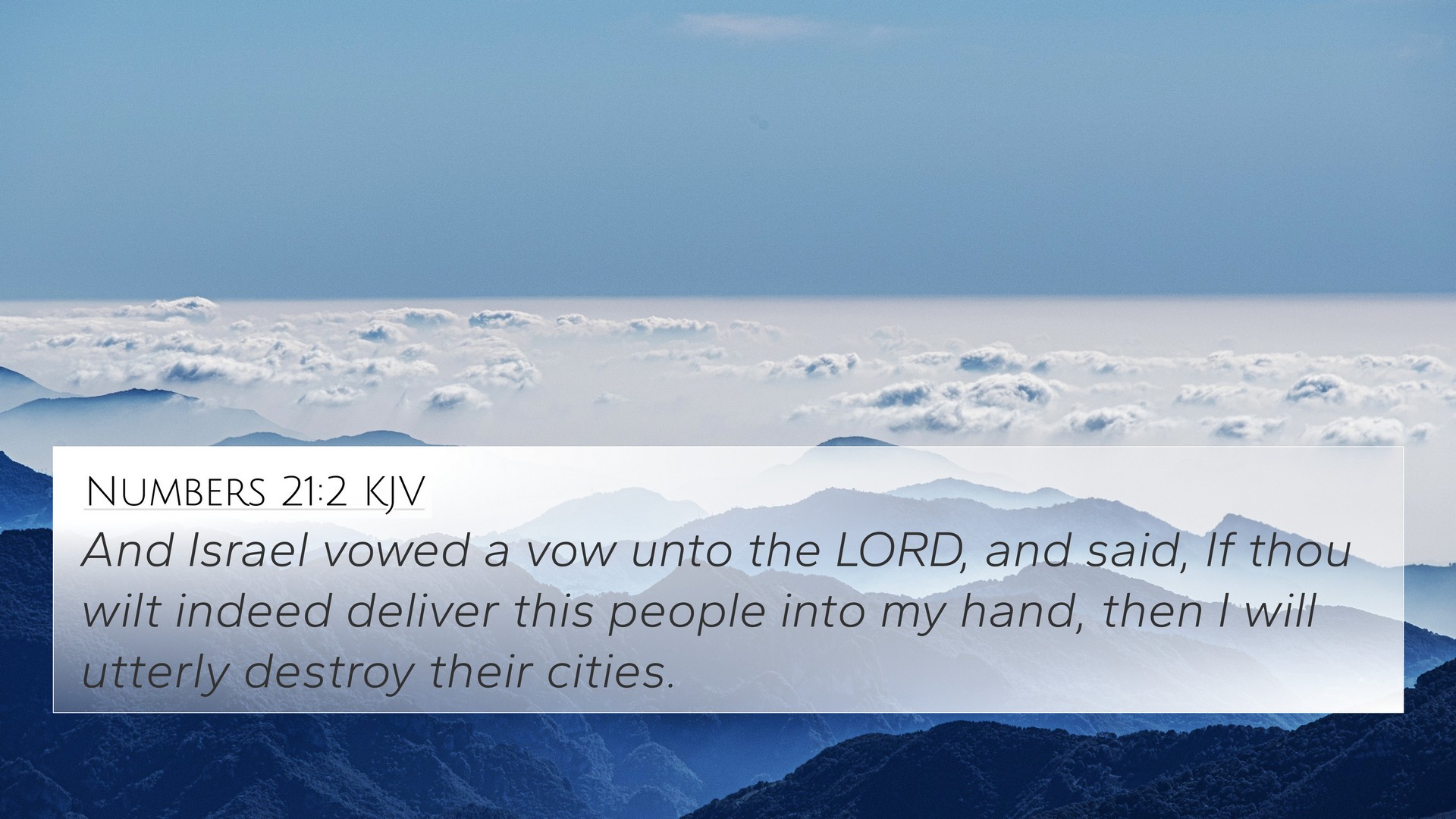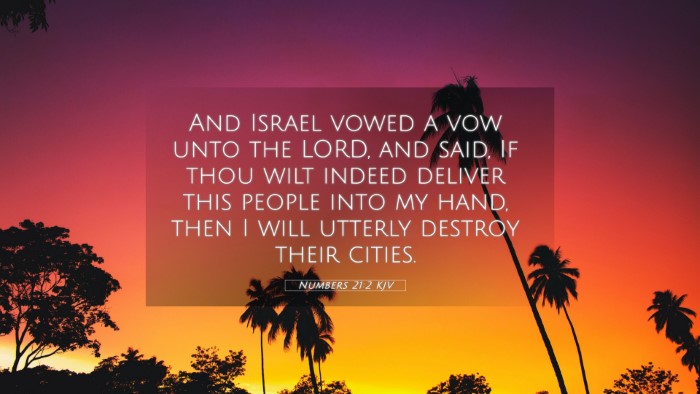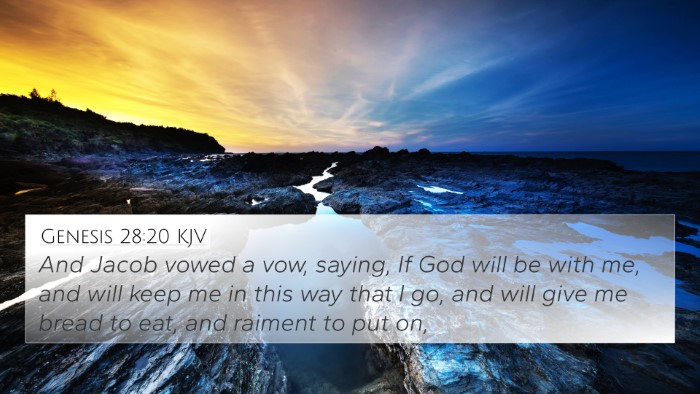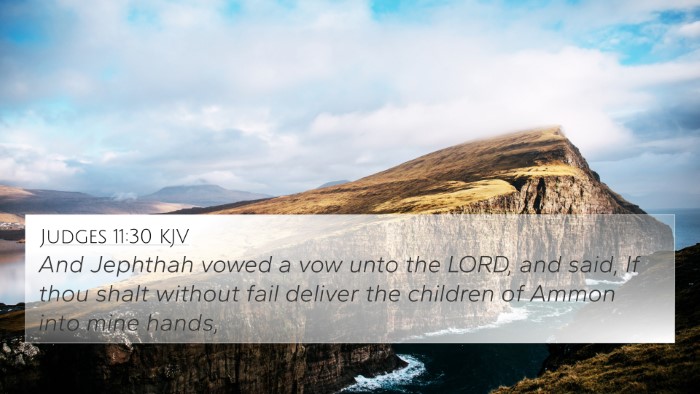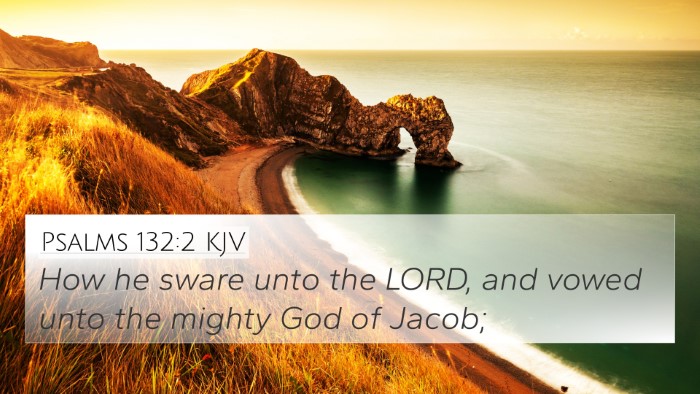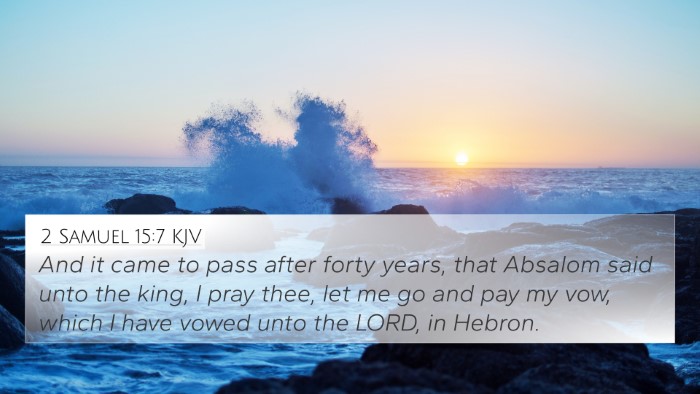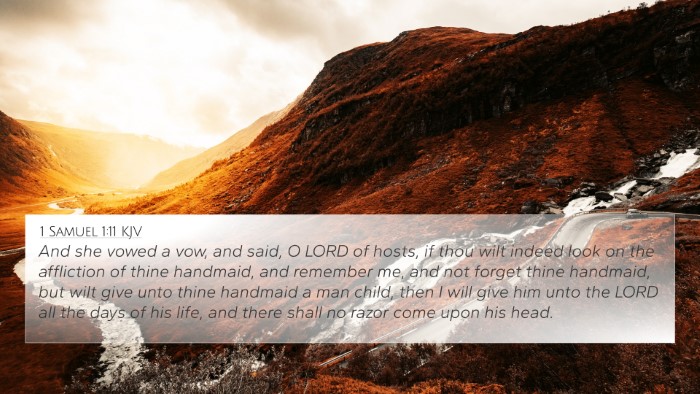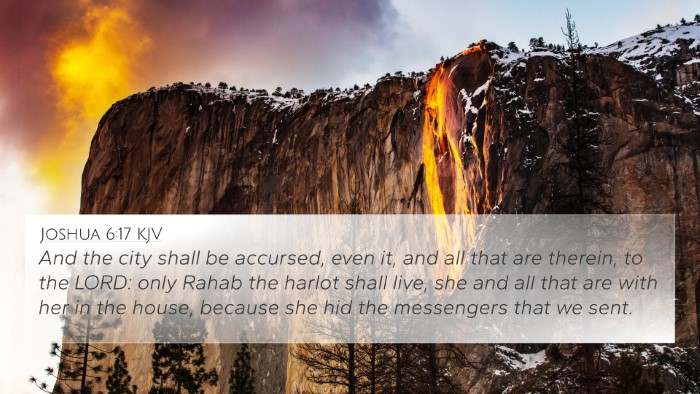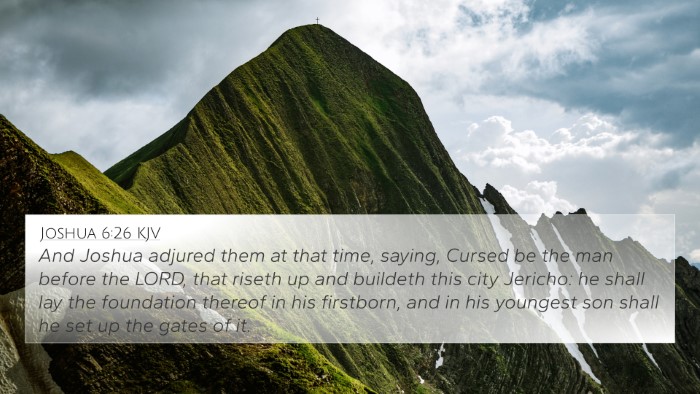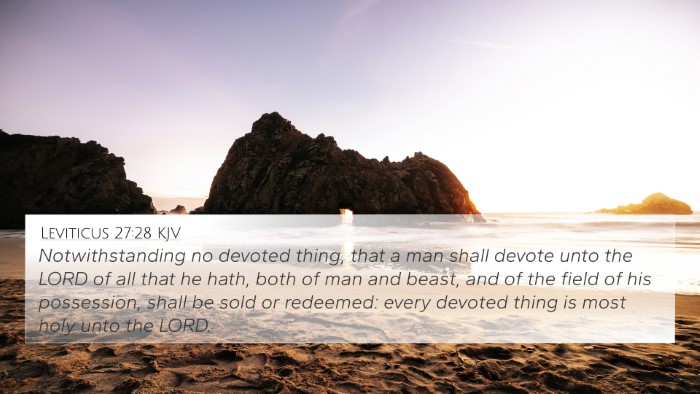Understanding Numbers 21:2
Verse: Numbers 21:2 - "And Israel vowed a vow unto the Lord, and said, If thou wilt indeed deliver this people into my hand, then I will utterly destroy their cities."
Summary of Meaning
This verse encapsulates a moment of desperation and commitment from the Israelites. In the face of conflict with the Canaanites, they vow to God for His assistance, promising total dedication to His service in return for victory. The commitment reflects both a profound faith in God’s power and a willingness to act righteously by not sparing the cities of their enemies.
Commentary Insights
Insights from public domain commentaries highlight several key themes:
- Faith and Vows: Matthew Henry emphasizes the importance of making vows to God in faith and relying firmly on divine support in battles, stressing that such vows should be fulfilled genuinely.
- Divine Intervention: Albert Barnes points out that the Israelites recognized their need for God's intervention against the Canaanite forces, showcasing their dependence on divine power for success.
- Destruction of Sin: Adam Clarke notes that this vow reflects a broader spiritual truth: a commitment to destroy sin and idolatry represented by the Canaanites, paralleling the believer's struggle against spiritual adversaries.
Thematic Connections
This verse can be cross-referenced with multiple other scriptures to illustrate its broader context and themes within the Bible:
- Deuteronomy 23:4-5: Relates to God's command regarding the Ammonites and Moabites, emphasizing the consequences of divine opposition.
- Judges 11:30-31: Jephthah's vow to sacrifice, illustrating the serious nature of vows made to the Lord during warfare.
- 1 Samuel 1:11: Hannah's vow echoes similar themes of dedication in exchange for God's grace.
- Psalm 66:13-15: A direct dialogue of bringing vows to God, paralleling the commitment of Israel in Numbers.
- 2 Samuel 21:1: The repercussions of Israel's sin leading to conflict, reinforcing the concept of divine justice and the necessity of repentance.
- Hebrews 11:32-34: A New Testament reflection on the faith of the Israelites during battles, including their journeys and commitments.
- Romans 12:1: The call for believers to offer themselves as living sacrifices resonates with the vow of total destruction made by Israel towards their enemies.
Additional Cross-References
In performing a comparative Bible verse analysis, these verses also bridge significant narratives in understanding divine promises and human commitment:
- Exodus 17:8-13: The battle against Amalek, showcasing reliance on God through Moses’ raised hands.
- Joshua 6:20: The effects of faith-filled actions illustrated through the fall of Jericho, reflecting similar themes of divine intervention.
- Matthew 5:37: The teaching about fulfilling vows reinforces the weight of commitment before God.
The Importance of Cross-Referencing
Cross-referencing resources aid in understanding the connections between Bible verses, revealing the interwoven narratives and the importance of commitment to God. Utilizing tools such as a Bible concordance or a cross-reference Bible study guide can enhance one’s study:
- How to use Bible cross-references: Understanding narrative connections expounded in Scripture.
- Bible cross-reference system: Methods to connect themes of urgency in faith within the text.
- Comprehensive Bible cross-reference materials: Resources that provide deeper insight into thematic dialogues throughout the scriptures.
Conclusion
Numbers 21:2 serves as a profound reminder of the need for divine intervention and the power of vows made in faith. By studying this verse alongside its cross-references, believers can gain deeper insights into the significance of their commitments to God and His expectations. The interplay of faith, action, and divine support is a recurring theme throughout the Scriptures, enriching the understanding of God’s covenant relationship with His people.
